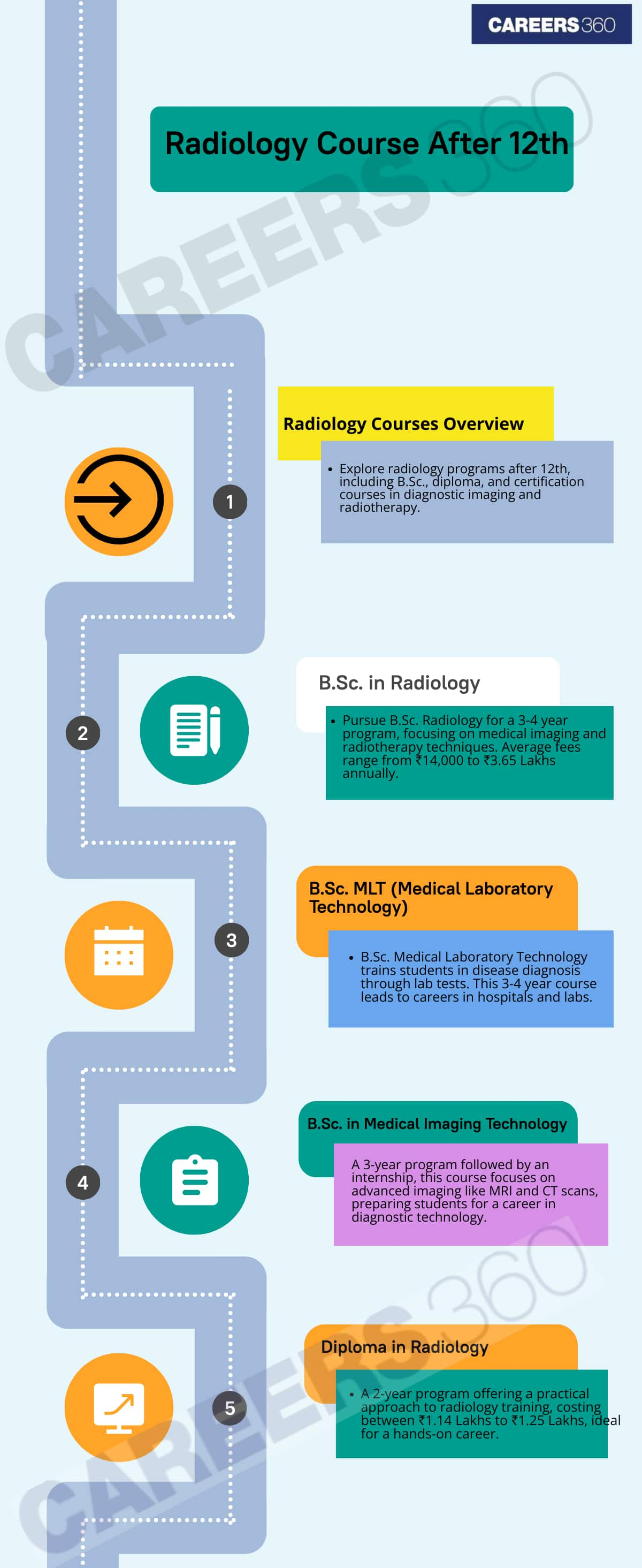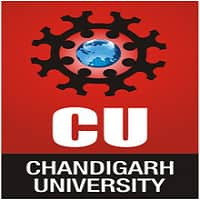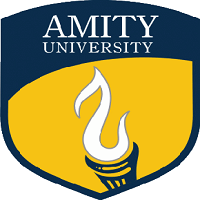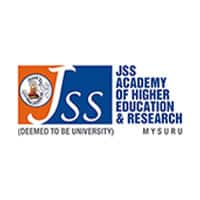Amrita Vishwa Vidyapeetham Allied & Life Science 2025
Admissions Open for multiple allied and health sciences programs across 5 campuses | Ranked #7 in India by NIRF, NAAC A++ Accredited
Radiology is a specialised branch of paramedical science that deals with the diagnosis of various diseases. It uses technology and diagnostics using radiation and imaging of the inner organ systems in the body. However, the field of radiology is divided into two main categories: Diagnostic and Interventional. In Diagnostic radiology, imaging processes are used to diagnose diseases or injuries in patients. Alternatively, Interventional radiology involves guided medical therapies administered via small incisions using medical imaging processes.
A radiologist often collaborates with doctors and is an integral part of the medical diagnosis procedure. Radiologists generally use radiography to precisely diagnose a patient's illness or injury with the aid of technology. Radiologists also use a variety of imaging techniques to treat diseases such as X-rays, ultrasound, Computed Tomography (CT0, and nuclear medicine, such as Positron Emission Tomography (PET) and Magnetic Resonance Imaging (MRI). This rapid development of imaging technology over the past few years has created several opportunities in the field of radiology after the 12th.
In this article, we will discuss various radiology courses available after the 12th, average salary, colleges, and fees. However, before applying for admission, students should check all the relevant details.
Here are some of the online radiology courses, colleges, fees, and radiology course qualifications that can be taken after the 12th.
Courses | Duration | Average Annual Fee |
|---|---|---|
B.Sc. Radiology/ Radiography/ Radio Therapy | 3 to 4 years | Rs. 14,000 to Rs. 3.65 Lakhs |
3.5 to 4 years | Rs. 1.51 Lakhs to Rs. 4 Lakhs | |
3 years + 1 year internship | Rs. 20,000 to Rs. 3 Lakhs | |
2 to 2.6 years | Rs. 10,000 to Rs. 3.50 Lakhs | |
Diploma in Radiology/ Radiography | 2 years | Rs. 1.14 Lakhs to Rs. 1.25 Lakhs |
Certificate in Radiology/ Radiology Assistant/ Radiography Diagnostic | 6 months | Rs 25,000 – Rs 40,000 for six months. |
(Note- Data has been collated by Team Careers360)
BSc Radiology or Bachelor of Science in Radiology is an undergraduate degree programme in the field of medical radiography. It prepares the students for a successful career in radiography, radiation physics, and medical imaging techniques. Students should possess excellent research skills, the ability to interpret technical data, and proficiency in utilising radiography equipment. To apply for BSc Radiology, students must have cleared their 10+2 in the science stream
BSc Radiology Course Duration: Depending on the provider, the course duration of BSc Radiology is three to four years.
BSc Radiology Career Options- Graduates can find employment in various areas such as clinics, nursing homes, diagnostic centres, and research labs as radiology assistants, radiology technicians, radiographers, and MRI technicians.
BSc Radiology Average Salary- The average annual salary of a Radiology Technician in India is Rs. 2.4 LPA.
Admissions Open for multiple allied and health sciences programs across 5 campuses | Ranked #7 in India by NIRF, NAAC A++ Accredited

Medical Laboratory Technology (MLT) deals with diagnosing, treating, and preventing diseases using clinical laboratory tests. Medical laboratory technologists also assist the students in identifying cancers, pathogens, or genetic abnormalities in the samples. The course curriculum of BSc MLT is diagnostic molecular biology, clinical endocrinology, toxicology, and diagnostic cytology. To apply for BSc MLT, students must have graduated with a science stream.
BSc MLT Course Duration: The course duration is three to four years, depending on the provider
BSc MLT Average Salary- Radiologist salary in India is Rs. 25.5 LPA.
BSc MLT Career Options- After graduating with a BSc MLT course, students can work as technical officers, laboratory managers, supervisors, cytotechnologists, and healthcare administrators in hospitals, and medical and research laboratories.
BSc in Medical (Radio) Imaging Technology provides students with an in-depth understanding of advanced imaging modalities. It makes use of X-rays, professionals can diagnose a patient's exact condition through radiography. Medical Imaging Technologists are responsible for capturing bone, organs, and tissue for a patient's diagnosis.
Some of the key topics covered in the course are pathology, general radiography, intervention in diagnostic radiology, nuclear medicine, PET Scan, Doppler, and Echography. Since it requires good technical knowledge, having a science stream is compulsory. Some of the important highlights of the course are mentioned below,
Course Duration- The course duration of BSc Medical (Radio) Imaging Technology is three years, spread across, followed by one year of internship
Average Salary- The initial radiographer salary ranges between Rs. 35,000 to Rs. 45,000.
Career Options- After completing the course, students can work as imaging technologists, CT techs, CAT scan technologists, ultrasound technologists/diagnostic medical sonographers in private and public radio diagnostic facilities.
A Diploma in Medical Laboratory Technology (DMLT) educates and trains students about sample collection techniques for routine and specialised tests, as well as conducting the required diagnostic tests followed by analysing the results. A diploma in radiology course after 12th equips students with laboratory procedures, quality control, and pathology lab orientation with the requisite knowledge of laboratory equipment.
It also provides training in the blood bank, basic haematology, and clinical biochemistry, as well as blood grouping and collection procedures. A diploma in radiology after the 12th is quite comprehensive and provides students with the necessary hands-on training and experience. One needs to have a science background to pursue such radiology courses after 12th, commerce students are not eligible for pursuing this course.
Course Duration: The duration of the diploma programmes can range between two years to two years and six months.
Average Salary: The average salary of a medical lab technician can range between Rs 15,000 – Rs 18,000 per month.
Career Options: A medical lab technologist’s role is important for the effective functioning of biomedical laboratories. They can work as pathology assistants, radiation protection technicians, medical repair technicians, and lab technicians after pursuing a diploma in radiology after the 12th.
A Diploma in Radiology is a one to two-year programme that can be pursued right after completion of 10+2. Most institutions demand Physics, Chemistry, and Biology as major subjects to get themselves enrolled. There can be exceptions as well and Mathematics students can also be admitted, depending on the eligibility criteria of institutions.
After completing these radiology tech classes, students will be well-equipped with several imaging techniques to map the human anatomy. Graduates can easily find radiology jobs in nearby hospitals or private laboratories.
Duration: The duration of these radiology courses is a minimum of one year and a maximum of two years, depending on the college curriculum.
Salary: Radiology salary after the diploma will be around Rs. 18,000 per month for freshers. This radiography technologist's salary is expected to change depending on the job location and experience.
Candidates who want to save time can also opt for certification programmes in radiology. Certifications in radiology are generally in short form and provide students with skills and knowledge to enhance careers in this field. Listed below are the popular certification programmes.
Online platforms have created an opportunity for aspirants to learn radiology through online certificate courses in radiology. If aspirants can not afford to buy, do not worry, as some of them even offer free online radiology courses with certificates.
You can pursue a B.Sc in Radiography or a B.Sc. in Medical lab technology and can be employed as a radiologist with private or public medical laboratories. You can also pursue a two-year diploma course in radiology or MLT to start your career as a technician. However, for radiology courses after the 12th, a commerce background is not recommended.
Radiology courses do not require NEET scores. Radiology is a branch of paramedical sciences, and admission to B.Sc courses is based on merit or separate entrance exams conducted by different colleges.
The path to becoming a radiologist would be an M.B.B.S. followed by an M.D in Radiology. Apart from that, you can pursue B.Sc. degrees in radiography or medical lab technology, and work as a technician alongside MD radiologists.
The starting salary of a radiologist can range between Rs. 25,000 - Rs. 30,000 and can go up to Rs. 70,000 - Rs. 80,000 with years of practice and experience.
To get into B.Sc radiology courses after 12th, science is compulsory. The main eligibility criteria is a minimum of 50 per cent in PCB and entrance tests as specified by the college. For some colleges, admission is based on merit. Because it is a scientific field in its essence, for radiology courses after 12th, commerce students can not apply.
Radiology courses are provided at diploma, undergraduate, and postgraduate levels. At the diploma level, a Diploma in Medical Laboratory Technology and a B.Sc in Radiology at the undergraduate level are considered to be the best radiology training courses.
The required minimum qualification for radiology courses is passing 10+2 with the PCB stream. A minimum of 50 per cent marks are also required.
Yes, pursuing a radiology course is a good choice for individuals because of its salary package and demand in the healthcare sector.
It simply depends on the course you pursue. MBBS and MD in radiology will provide you with a doctoral title, however, other courses will not.
Yes, Radiologists are doctors that are specialised in radiology. The average radiologists salary ranges between Rs. 10 LPA to Rs. 15 LPA, according to AmbitionBox.
The bsc Agriculture courses fee per year in India vary depending on the types of colleges I mean:-
1. Government Colleges:-
. fees rs 5000 to 40000 per year
Examples: BHU, PJTSAU, ANGRAU, TNAU, OUAT etc
2. Private Colleges:-
fees: Rs. 50000 to rs 2,50,000 per year
Examples: Amity University, Lovely Professonal University, Shrada University etc.
fees include tution, hostel and other charges.
Average Duration:- 4 years
Thanks!
Dear Sourabh,
Institutes accepting JEE Main for Integrated CS/AI/DS Programs
1. IIIT- Hyderabad
2. IIIT- Delhi
3. Central Universities (like CUJ, CUH, etc.)
4. Private Universities like Ashoka University, Shiv Nadar University etc.
Hope you get it!
25K rank for general category is a good rank for getting into BSE nursing ,BSE anaesthesia ,OT Tech ,MLT,BPT, especially understate Kota. You may not get AIIMS/central seats, but government and top private options are well within reach..
Indian colleges might offer admissions to people who have scored below 30,000 in JEE Main.
1. NITs (National Institutes of Technology)
2. IIITs (Indian Institutes of Information Technology)
3. GFTIs (Government Funded Technical Institutes)
Certain colleges and courses are available for these programs.
- NIT Jalandhar (Chemical Engineering)
- NIT Jaipur (Civil Engineering)
- IIIT Kancheepuram (Smart Manufacturing)
- IIIT Tiruchirappalli (Electronics and Communication Engineering)
BSC Paramedical program
First year fee:65,000
Total fee for the four year course: 2.6 lakhs
The Institute of various BSc specialisation Such as
Orthotists and Prosthetists are professionals who provide aid to patients with disabilities. They fix them to artificial limbs (prosthetics) and help them to regain stability. There are times when people lose their limbs in an accident. In some other occasions, they are born without a limb or orthopaedic impairment. Orthotists and prosthetists play a crucial role in their lives with fixing them to assistive devices and provide mobility.
A pathologist diagnoses diseases by examining body fluids, tissues, and organs. They perform tests, microscopic analysis, and autopsies to identify abnormalities and causes of illness. Working mainly in hospitals and labs, they collaborate with doctors to guide treatment. The field offers growing career opportunities in clinical practice, research, and education due to rising demand for diagnostic services.
A Veterinary Doctor diagnoses, treats, and prevents diseases in animals. They perform surgeries, advise on nutrition, and guide animal care and breeding. To become one in India, students must complete a Bachelor’s in Veterinary Science (B.V.Sc) after studying Physics, Chemistry, and Biology in Class 12. The role combines medical expertise with compassion for animal welfare.
A Speech Therapist (Speech-Language Pathologist) diagnoses and treats speech, language, communication, and swallowing disorders across all ages. They work in hospitals, schools, clinics, and more. Becoming an SLP requires a master’s degree, clinical training, and certification. With rising demand, the career offers rewarding opportunities in therapy, education, and research.
A gynaecologist is a medical specialist in women’s reproductive health, handling issues like menstruation, fertility, pregnancy, and childbirth. They perform exams, surgeries, and offer family planning services. To become one, students must complete MBBS and postgraduate training. Gynaecologists work in hospitals or clinics and are in high demand, with salaries growing significantly with experience.
The audiologist career involves audiology professionals who are responsible to treat hearing loss and proactively preventing the relevant damage. Individuals who opt for a career as an audiologist use various testing strategies with the aim to determine if someone has a normal sensitivity to sounds or not. After the identification of hearing loss, a hearing doctor is required to determine which sections of the hearing are affected, to what extent they are affected, and where the wound causing the hearing loss is found. As soon as the hearing loss is identified, the patients are provided with recommendations for interventions and rehabilitation such as hearing aids, cochlear implants, and appropriate medical referrals. While audiology is a branch of science that studies and researches hearing, balance, and related disorders.
An oncologist is a medical doctor who diagnoses and treats cancer using chemotherapy, radiation, surgery, and other therapies. They work with a team to create treatment plans tailored to each patient. Specialisations include medical, surgical, radiation, pediatric, gynecologic, and hematologic oncology. Becoming an oncologist in India requires an MBBS and postgraduate studies in oncology.
A biochemist studies the chemical processes within living organisms, combining chemistry and biology. They conduct experiments, analyse data, and develop products like drugs and vaccines. Biochemists work in labs, healthcare, research, and education. A degree in biochemistry or related fields is essential, with advanced roles often requiring higher degrees. They also ensure quality control and may teach or mentor others.
A Narcotics Officer investigates drug use, tracks traffickers, and conducts undercover operations to arrest dealers. They collaborate with government agencies at borders and work with NGOs to raise awareness about drug abuse. This vital role helps reduce illegal activities, making communities safer and limiting the spread of drugs. If you’re committed to law enforcement, this career could be your path.
A Research Associate supports scientists by designing and conducting experiments, collecting and analyzing data, and preparing reports. They ensure research follows ethical guidelines and collaborate with teams. Typically working in labs or research institutions, they start with a salary around Rs. 35,000 monthly, growing with experience. Career growth can lead to senior research or scientist roles.
A Biotechnologist is a professional who possesses strong knowledge and techniques that are utilised in creating and developing innovative products that improve the quality of human life standards. A biochemist uses biological organisms to create and improve goods and procedures for agriculture, medicine, and sustainability. He or she researches the genetic, chemical, and physical characteristics of cells, tissues, and organisms to determine how they can be used industrially.
A career as Research and Development (R&D) Personnel involves innovating and improving products or technologies through scientific work, experiments, and analysis. They design models, manage projects, and support technical and administrative tasks. Typically requiring a relevant engineering degree, this role demands strong analytical, problem-solving, and communication skills, ideal for those passionate about innovation and scientific discovery.
A Drug Inspector ensures the quality and safety of medicines by inspecting pharmaceuticals throughout the production, distribution, and sale processes. They ensure drugs meet health standards, preventing unsafe or substandard medicines from reaching consumers. Drug Inspectors are responsible for monitoring compliance with regulations, conducting inspections, and ensuring that products meet required safety and efficacy standards.

NAAC A+ Grade | Ranked No.1 Private University in India (QS World University Rankings 2025)

Ranked #1 Among all Private Indian Universities in QS Asia Rankings 2025 | Scholarships worth 210 CR

Ranked amongst top 3% universities globally (QS Rankings)

NAAC A+ Accredited| Ranked #24 in University Category by NIRF | Applications open for multiple UG & PG Programs
Admissions Open 2025
Beyond MBBS: Discover New Doors in Healthcare | Apply for UG in Health Sciences | Pharmacy | Nursing | Physiotherapy | Public Health | Occupational Therapy